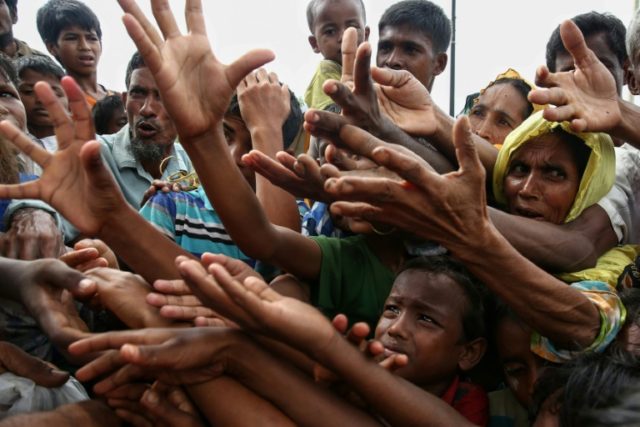The Trump administration is considering reducing the number of refugees admitted to the United States over the next year to 50,000, current and former government officials told the New York Times Tuesday.
As a deadline for Trump to set numbers for refugee admissions for next year approaches on October 1, the issue has set off intense debate inside the White House.
Some of Trump’s advisers have argued for lower ceilings. Trump’s senior adviser for policy Stephen Miller has advocated for reducing it to 15,000, and his former chief strategist Steve Bannon was in favor of reducing it to 10,000.
Trump on the campaign trail promised to deny entry to refugees who posed a terrorist threat. Early on in office, he capped the number at 50,000 as part of a temporary ban on travel from seven predominantly Muslim countries. That more than halved the 110,000 former President Obama had set for 2016.
Officials at the Department of Homeland Security want to cut the number to 40,000, citing security concerns and limited resources, while officials at the National Security Council, the State Department, and the Defense Department oppose such a “precipitous drop,” according to the Times.
Two administration officials said those arguing for a lower number cite the need to strengthen vetting to prevent terrorists from entering the country, or that it is too expensive to resettle more refugees when immigration authorities are already facing a “years-long” backlog of hundreds of thousands of asylum seekers already in the country.
A senior administration official said there is a “broader rethinking of how the United States deals with migrants” that is based on the idea that it is more effective and affordable to help people outside the U.S.’s borders than within them, given the current backlog.
Mark Krikorian, the executive director of the Center for Immigration Studies, a Washington-based research organization that advocates less immigration, told the Times that resettling a refugee from the Middle East in the U.S. costs 12 times as much as what the United Nations estimates it would cost to care for the person in the region.
“There’s no real, moral justification for resettling large numbers of refugees,” he added. “Refugee resettlement is just a way of making ourselves feel better. ”
The Supreme Court on Tuesday allowed for Trump’s temporary travel ban to continue as it considers challenges to it, and will hear arguments next month.
Trump last week announced he would end the Deferred Action for Childhood Arrivals (DACA), which gave protection to illegal immigrants brought to the U.S. as children, in six months, but has urged Congress to find a way to address their situations.

COMMENTS
Please let us know if you're having issues with commenting.